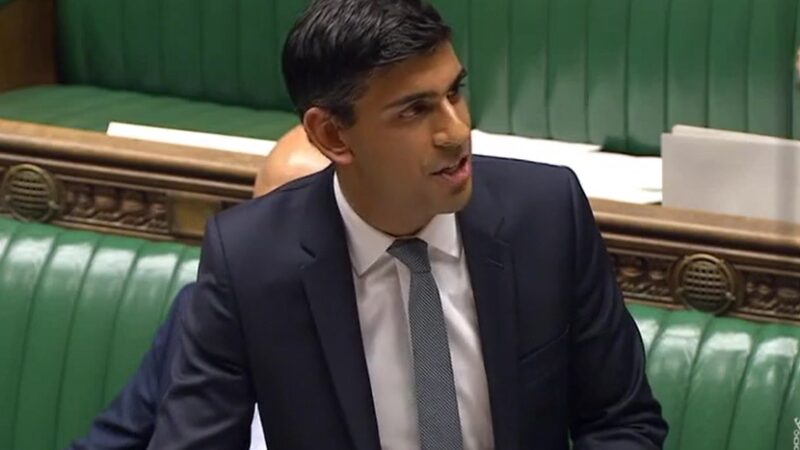Millions of families up and down the country are struggling with the cost of living crisis, which according to the Bank of England has seen the cost of living hit a fresh 30-year high.

Millions of families up and down the country are struggling with the cost of living crisis, which according to the Bank of England has seen the cost of living hit a fresh 30-year high. An additional 2 million homes are predicted to be plunged into fuel poverty from next month, bringing the total number to 6.5 million.
It is amid this backdrop, of soaring energy bills, inflation and increasing food and fuel prices, that chancellor Rishi Sunak will deliver his spring statement on Wednesday. This was supposed to be the post-pandemic statement, one which Sunak had hoped would allow him to reinstate his credentials as a low-tax, Thatcherite chancellor. However, recent events, including Russia’s invasion of Ukraine, have caused an unwelcome shock to the UK economy, meaning that Sunak once more must revise his initial plans.
The chancellor has been keen to downplay just how much exactly he can do to help people, as those on low incomes fall behind on bills and skip meals to make ends meet. Sunak insists that he can’t ‘solve every problem’.
Yet Sunak could choose, if he so wishes, to help millions of families up and down the country in what has become an unprecedented cost of living crisis in modern times.
Here are 5 measures the chancellor could undertake:
1.Raise benefits in line with inflation
By far one of the most effective measures the chancellor could undertake to help those on low incomes during the cost of living crisis, is raising benefits in line with inflation. Benefits, such as Universal Credit, are due to go up in April by 3.1%, the rate of inflation the previous September, however the Bank of England forecasts that inflation will average 8% in the coming months.
The Joseph Rowntree Foundation (JRF) has warned that 400,000 people will fall into poverty if benefits are only uprated by 3.1% this year. The chancellor could also choose to reverse the £20 cut to Universal Credit that his government so callously imposed, which plunged hundreds of thousands of people into poverty.
2. Delay or scrap the National Insurance rise altogether
Both the Labour Party and Tory backbenchers are calling on the chancellor to either delay or scrap altogether the rise in National Insurance contributions which will come into effect from next month.
The 1.25 percentage points rise will tax the average worker £250 a year, and raise costs for firms which hire staff. With better than expected tax receipts caused by surging inflation, calls have grown on Sunak to take action on National Insurance.
Sunak could also decide to increase the threshold for paying NICs to protect those on the lowest incomes.
3.Windfall tax on oil and gas firms
If the chancellor is genuinely interested in ‘levelling up’ and shifting the tax burden from ordinary working people to the wealthy, he could choose to impose a windfall tax on oil and gas firms.
With the likes of Shell on track to post a £23.6bn profit this year, it would be an easy way for the government to bring in money into its coffers and help reduce people’s bills.
Labour has proposed an increase of 10 percentage points on corporation tax of North Sea oil and gas producers, in the year beginning in April.
The party says that this would raise £1.2bn which could be used to help households struggling to cope with a 54% rise in energy bills from April.
Labour says it would get rid of VAT on domestic fuel bills (currently 5%) and increase the warm homes discount from £140 to £400 as a result.
4. Cut VAT
The Liberal Democrats are among those who have called for a VAT cut which would see the rate slashed from 20 to 17.5% for a year in a bid to ease the cost of living crunch on British households.
The party say that new policy proposal, released on the eve of its spring conference, would save households an average of £600 a year which would help them with soaring inflation and next month’s rise in National Insurance.
5. Tax and spending plans to encourage business investment
The Confederation of Business Industry (CBI) has called on the government to introduce permanent investment incentives if it wants to increase growth and productivity without resorting to future tax rises.
The CBI says that a permanent investment deduction, where companies can claim investments back in tax credits, could boost spending by £40 billion by 2026. Economists say that boosting the country’s economic productivity could help to raise the rate of economic growth and living standards.
Basit Mahmood is editor of Left Foot Forward
To reach hundreds of thousands of new readers we need to grow our donor base substantially.
That's why in 2024, we are seeking to generate 150 additional regular donors to support Left Foot Forward's work.
We still need another 117 people to donate to hit the target. You can help. Donate today.



